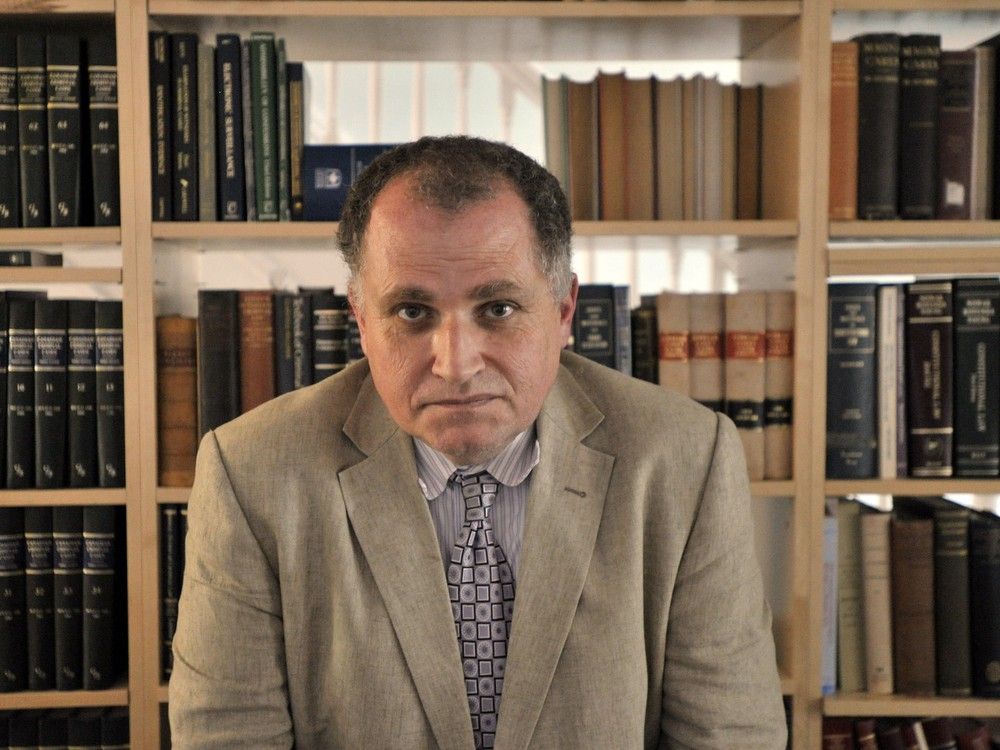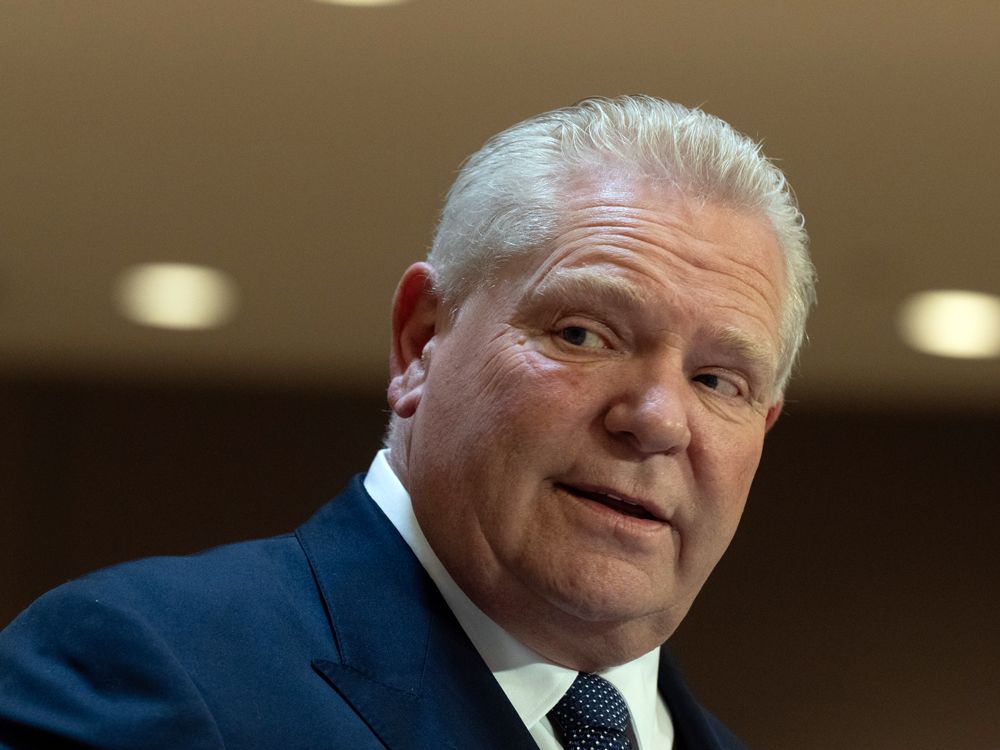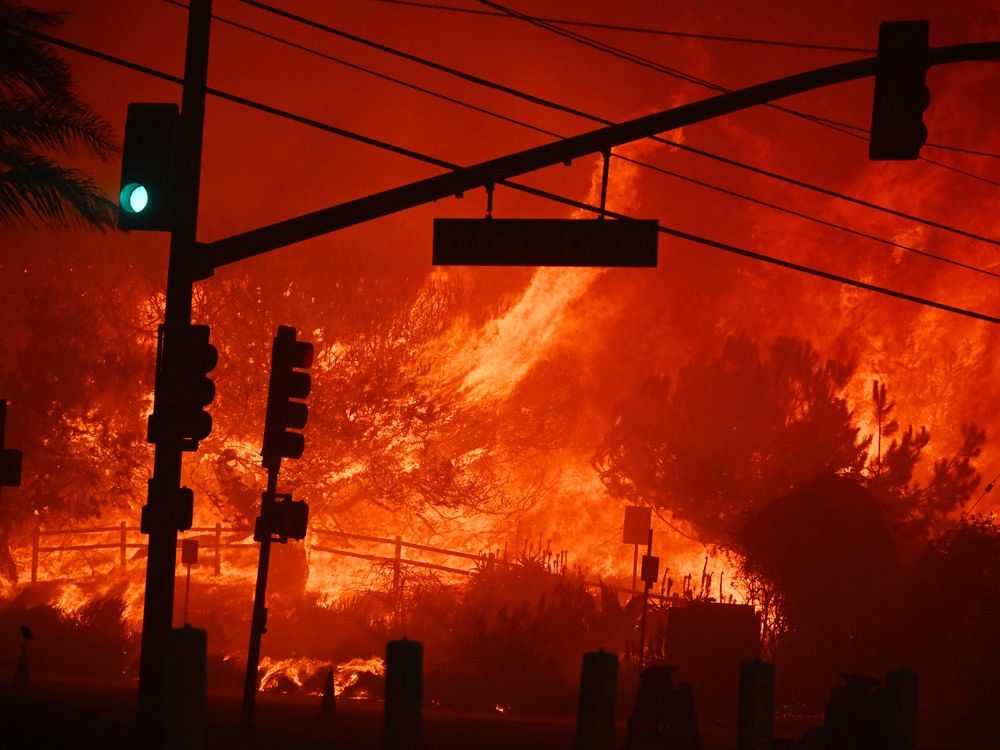While climate change discussions often focus on science and data, spiritual values can offer complementary perspective and support.
Published Dec 26, 2024 • Last updated 0 minutes ago • 4 minute read

As our city continues to roll out its new three-item garbage policy, it’s worth reflecting on one eco-principle deeply embedded in many world religions: environmental stewardship. Specifically, the notion of protecting and nurturing the Earth is an essential tenet of Islamic teachings.
Yes, my fellow Ottawans, you read that correctly. There is a significant, though often overlooked, connection between faith and sustainability, which not only enhances our understanding but also provides a powerful framework for addressing contemporary environmental challenges.
Advertisement 2
THIS CONTENT IS RESERVED FOR SUBSCRIBERS ONLY
Subscribe now to read the latest news in your city and across Canada.
- Exclusive articles from Elizabeth Payne, David Pugliese, Andrew Duffy, Bruce Deachman and others. Plus, food reviews and event listings in the weekly newsletter, Ottawa, Out of Office.
- Unlimited online access to Ottawa Citizen and 15 news sites with one account.
- Ottawa Citizen ePaper, an electronic replica of the print edition to view on any device, share and comment on.
- Daily puzzles, including the New York Times Crossword.
- Support local journalism.
SUBSCRIBE TO UNLOCK MORE ARTICLES
Subscribe now to read the latest news in your city and across Canada.
- Exclusive articles from Elizabeth Payne, David Pugliese, Andrew Duffy, Bruce Deachman and others. Plus, food reviews and event listings in the weekly newsletter, Ottawa, Out of Office.
- Unlimited online access to Ottawa Citizen and 15 news sites with one account.
- Ottawa Citizen ePaper, an electronic replica of the print edition to view on any device, share and comment on.
- Daily puzzles, including the New York Times Crossword.
- Support local journalism.
REGISTER / SIGN IN TO UNLOCK MORE ARTICLES
Create an account or sign in to continue with your reading experience.
- Access articles from across Canada with one account.
- Share your thoughts and join the conversation in the comments.
- Enjoy additional articles per month.
- Get email updates from your favourite authors.
THIS ARTICLE IS FREE TO READ REGISTER TO UNLOCK.
Create an account or sign in to continue with your reading experience.
- Access articles from across Canada with one account
- Share your thoughts and join the conversation in the comments
- Enjoy additional articles per month
- Get email updates from your favourite authors
Sign In or Create an Account
or
Article content
Islam teaches that humans are entrusted with the responsibility of caring for the Earth: “It is He who has made you successors upon the Earth” (Qur’an 35:39). This concept of stewardship is not unique to Islam; it is shared by the Abrahamic faiths, viewing humanity as stewards of God’s creation, charged with protecting the environment. These religions all emphasize the need to care for the Earth as an expression of reverence for God’s work.
For Muslims, the Qur’an serves not only as the divine word but also as a source of guidance in all areas of life, including how we interact with the natural world. One key teaching is the prohibition of wastefulness, which is discouraged for reasons both moral and spiritual. The Qur’an tells Muslims: “We have created all things in proportion and measure” (Qur’an: 54:49), underscoring that every part of the natural world has a purpose.
Wasting resources is not only harmful to the environment but goes against divine wisdom. Thus, Islam advocates for the responsible use of resources, urging people to take only what they need and avoid excess. This principle aligns with living in harmony with God’s creation and is a form of environmental stewardship.
Advertisement 3
Article content
An example reflecting the Qur’anic spirit of balance and moderation, even when resources seem abundant, is seen in the Islamic approach to water use. The Prophet Muhammad warned his followers against wastefulness, even when water is plentiful during rituals such as ablution for prayer. He famously said, “Do not waste water, even if you perform your ablution on the banks of an abundantly flowing river” (Ibn Majah, 425).
Protecting the Earth from harm, such as littering, is another important theme in Islam. The Prophet said, “Every joint of a person must perform a charity each day that the sun rises … (and) removing a harmful object from the road is a charity” (an-Nawawi, 26). This teaching links environmental care directly to spiritual growth, making it clear that protecting the Earth is both a physical and a moral responsibility.
Wasting resources is not only harmful to the environment but goes against divine wisdom.Although it may seem surprising to connect religion with contemporary environmental issues, researchers and environmental advocates argue that faith-based organizations can play a key role in promoting sustainability. Religious groups, though often excluded from formal policy-making processes, have the power to mobilize communities and inspire collective action. In fact, the United Nations adopted Resolution 65/5 in 2010, recognizing the importance of engaging faith-based organizations (FBOs) in achieving its sustainable development goals. The resolution highlighted the potential of FBOs to mobilize communities, advocate for human rights, promote peace and address critical environmental challenges.
Advertisement 4
Article content
There are already successful examples of faith-based movements driving environmental change. For instance, the GreenFaith and Green Spirituality movements empower religious communities around the world to promote and advocate for climate justice. Similarly, the Interfaith Rainforest Initiative brings together religious leaders to combat tropical deforestation and protect rainforests, while also supporting Indigenous communities. These initiatives show the power of spirituality in advancing environmental action and highlight the role faith communities can play in tackling environmental challenges.

While climate change discussions often focus on science and data, spiritual values can offer a complementary perspective in addressing the environmental crisis. Incorporating religious teachings into environmental policies could deepen our commitment to sustainable practices. Given the urgency of issues such as climate change, pollution and waste, involving faith-based organizations in local initiatives could provide much-needed momentum for change. By leveraging the moral authority of religious leaders, we can encourage more sustainable behaviors and a deeper sense of responsibility toward the Earth.
Advertisement 5
Article content
How might this work in Ottawa? Although this idea is still in its early stages, faith-based organizations could take a leading role in promoting sustainability within the city. For example, religious leaders could unite to advocate for recycling and other eco-friendly practices, incorporating these messages into sermons, religious education and community events. By doing so, faith communities could instil a sense of responsibility and urgency regarding environmental issues within their congregations.
In Canada, we also have a deep respect for Indigenous wisdom regarding the land and nature. A collaboration between faith groups and Indigenous communities could offer a holistic approach to environmental stewardship, combining traditional ecological knowledge with spiritual insights to create sustainable solutions. A city-wide initiative could foster environmental education, collaboration and advocacy, addressing local challenges such as waste reduction and resource conservation.
As Ottawans, it’s crucial that we recognize the importance of protecting our environment and explore all avenues to do so. By embracing both the teachings of various faith traditions and the wisdom of Indigenous communities, we can build a more sustainable future for our city. Let’s take responsibility for our actions and ensure that our efforts today contribute to a healthier, more sustainable world for future generations.
Dr. Aliaa Dakroury is an Associate Professor at the School of Social Communication, Faculty of Human Sciences, Saint Paul University in Ottawa. Her research interests are focused on the right to communicate, Canadian media public policy and media representation of Islam among others. She can be reached at: [email protected]
Recommended from Editorial
-

Spears: Environment Canada dangerously optimistic on climate change action
-

Ottawa residents could face more heat-related illness, cancers due to climate change: report
Article content
.png)
 1 week ago
10
1 week ago
10




































 Bengali (BD) ·
Bengali (BD) ·  English (US) ·
English (US) ·